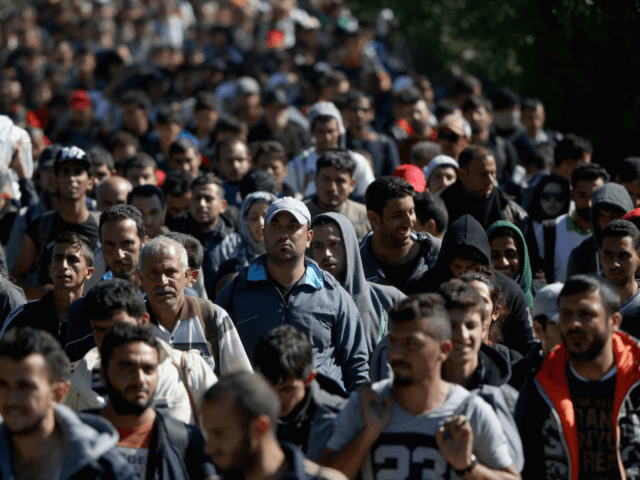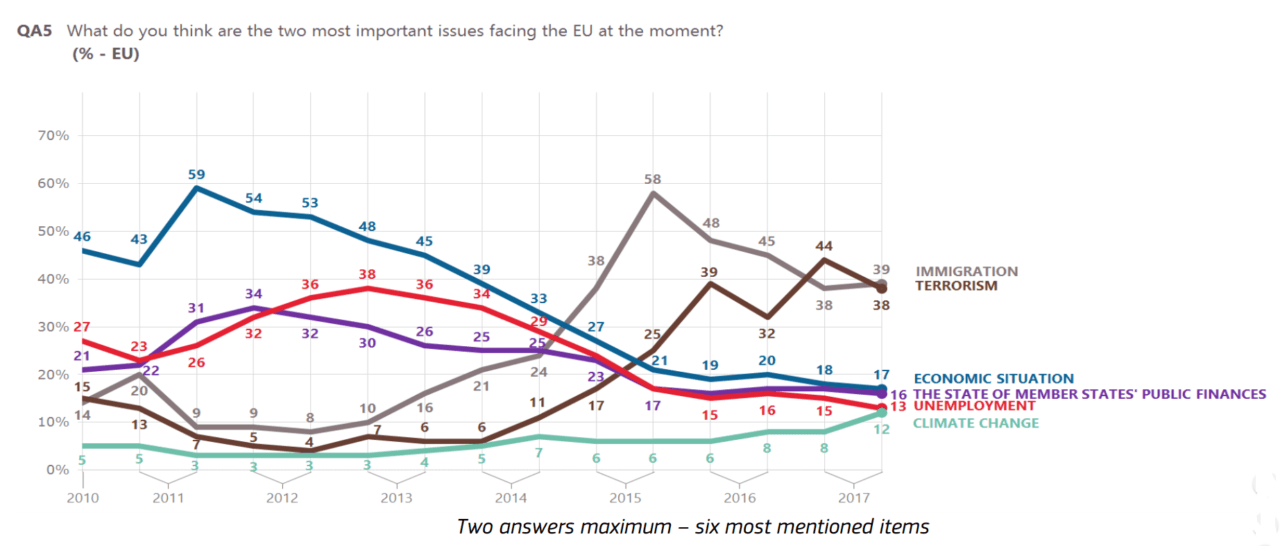Voters across the EU agree terrorism and immigration are the most important issues facing the bloc — far ahead of the economy, unemployment, or climate change.
Immigration is the EU’s greatest concern at 39 per cent with terrorism just a little behind at 38 per cent, according to the latest Eurobarometer poll.
There was more than a 20 point difference between terrorism and the next closest concern, the economic situation, at 17 per cent. Following was the state of member nations’ public finances (16 per cent), unemployment (13 per cent), and climate change (12 per cent).
Though climate change as a concern has grown steadily since 2010 (when it was just five per cent), the belief that terrorism and immigration represent the greatest threat has more than doubled from seven years ago from 15 per cent and 14 per cent respectively.
The figures, taken biannually in Spring and Autumn by the European Commission, also show that immigration concerns peaked at 58 per cent at the end of 2015, coinciding with the height of the migrant crisis when more than a million migrants flooded the continent after German Chancellor Angela Merkel invited them in unlimited numbers.
Terrorism was mentioned the most by 13 member-states, and immigration by 14 member-states, with Slovakia rating them equally important issues.
Immigration was considered the most important by the Baltic nation of Estonia (62 per cent), and so did Central European Visegrád countries the Czech Republic (58 per cent), Hungary (58 per cent), and Slovakia (43 per cent). It is rated the second most important issue in the remaining 24 member-states.
The Visegrád nations have been battling Brussels over the forced redistribution of third world migrants, with the bloc opening a case against Poland, Hungary, and the Czech Republic in the Summer for their refusal to engage in the programme.
EU28: Voters united across all memberstates agree in what they consider the most important issues facing the European Union: Immigration and Terrorism. #Eurozone #EuropeanUnion pic.twitter.com/bXFkre1LbC
— Europe Elects (@EuropeElects) December 20, 2017
Terrorism as a concern was also prominent throughout Central Europe (Hungary, 45 per cent; Poland, 52 per cent; Slovakia, 43 per cent; and the Czech Republic, 53 per cent).
These nations all acknowledge a connection between uncontrolled mass migration from the Middle East and terrorism in Western Europe, after several terrorists in Germany were found to be asylum seekers who entered the country during the migrant crisis.
In April, Polish Interior Minister Mariusz Błaszczak went so far as to state that his government would not allow the “bloody harvest” of terrorist attacks brought about by the “policy of multiculturalism in Western Europe” to come to Poland, with Hungary’s Cabinet Office chief Antal Rogán saying last year that “illegal immigration and terrorism go hand in hand”.


COMMENTS
Please let us know if you're having issues with commenting.